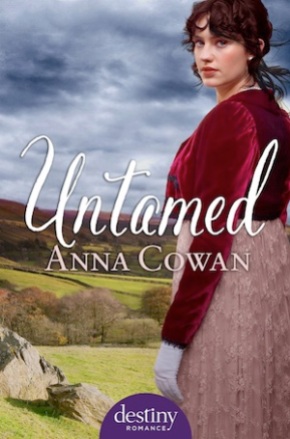Lia’s WIP Corner
![]() Gosh, the title for this blog sounds kinky. I kind of like it though. Let’s start with the word “WIP”; it’s a term bandied about fanfic circles but maybe you’ve never heard it before. WIP stands for work-in-progress, and in this recurring feature of the blog here at The Speculative Romantic, I’ll be taking the opportunity to talk a little bit about what I am working on at the moment.
Gosh, the title for this blog sounds kinky. I kind of like it though. Let’s start with the word “WIP”; it’s a term bandied about fanfic circles but maybe you’ve never heard it before. WIP stands for work-in-progress, and in this recurring feature of the blog here at The Speculative Romantic, I’ll be taking the opportunity to talk a little bit about what I am working on at the moment.
I have several works in progress right now. I’m waiting for a beta reader to get back to me on The Duality Paradigm so I can start on the third draft. Writing on the sequel The Convergence Theory is temporarily on hold while I a) wait to hear back from beta on the first book, b) work on other projects and c) while I figure out what happens next. In other words, I’m suffering some real Convergence writer’s block that I’m treating by backburnering.
Thieves Who Are Bad At Feelings
![]() I’m also editing a soulbonding heist novel called The Source and the Wire—of which the draft was written back in 2011 but I’ve only just gotten around to editing. I’m roughly 50% through the first round of edits though there are already a dozen places I’ve marked for rewrites.
I’m also editing a soulbonding heist novel called The Source and the Wire—of which the draft was written back in 2011 but I’ve only just gotten around to editing. I’m roughly 50% through the first round of edits though there are already a dozen places I’ve marked for rewrites.
The bulk of the story takes place in Portland and Toronto, which makes this the second major story I’ve written with scenes in Toronto and a Quebecois character. I think a writer’s vacation to Toronto will be in my future as soon as I can afford it.
I’m tentatively scheduling Source&Wire for a February publication on kindle and nook. The story is very intense and relationship-heavy for me. It tells the story of how Simon accidentally soulbonds to longtime colleague and one-time lover Luc Allard on a fraud job gone tits-up. Simon, unwilling to reveal his own dependence on Luc, tries to seduce the other man under the pretext of “letting off steam,” unaware of Luc’s own feelings for him. I’ve always thought of Source&Wire as a story about two people like trains that keep missing each other in the night. I’ll post an excerpt next month after I’ve finished editing it.
Writing Outside Lia’s Comfort Zone: Exploring Narrative Through Short Stories
On a different track, about three weeks ago a friend from Evergreen approached me to write a short story for a collection she’s putting together. The theme for this short story collection will be the exploration of relationship narratives that are not commonly portrayed in media: eg queer, trans, intersex, ace, poly, functional and non-functional. I wrote the first draft of a short story (tentatively titled Ava, sublime.) for that collection and sent it off to my beta. Ava is a very narrow exploration of a polyamorous relationship between two men and an aromantic woman, with very minor D/s elements. I have the feeling that it will need quite a bit of revising before I’m done with it but for the most part I’m quite pleased with how it shaped up and initial reaction from my alpha reader was positive. Here’s a short excerpt, feel free to drop a quick word and let me know what you think!
On Sundays she stayed late to get the bulk of the week’s roasting finished up, so during the week she could leave early. It was a Tuesday, unremarkable but for the fact that Patrick was out to dinner with some friends from college, leaving Ava and Brenden alone for the evening.
Brenden cooked, which was not out of the ordinary, something with meat balls made up ahead of time and defrosted, and a fancy sauce that involved white wine and fresh garlic and linguine—also fresh though Ava wouldn’t swear that he had made it himself.
“There’s a baguette next to you.”
“Hey, look at that, you’re right.” Ava grabbed the slender loaf of bread wrapped up in brown butcher paper, purchased from the french patisserie across the street from Brenden’s work.
“Slice it.”
“Got a knife?”
“In the block, to your left. You know that.”
“Forgot,” she said.
Brenden flicked one end of a hand towel at her bum.
“Hey!” Ava pointed one stern finger in his face and scowled, “None of that for me, sir.” He grinned back at her, all shiny white teeth and crisp dress shirt, tucked into expensive slacks. He even had his dress shoes on still. It felt a little like being scolded by her prep school principal.
And that’s the highlights—tune back in next week where I talk about writing Dialogue!








You must be logged in to post a comment.